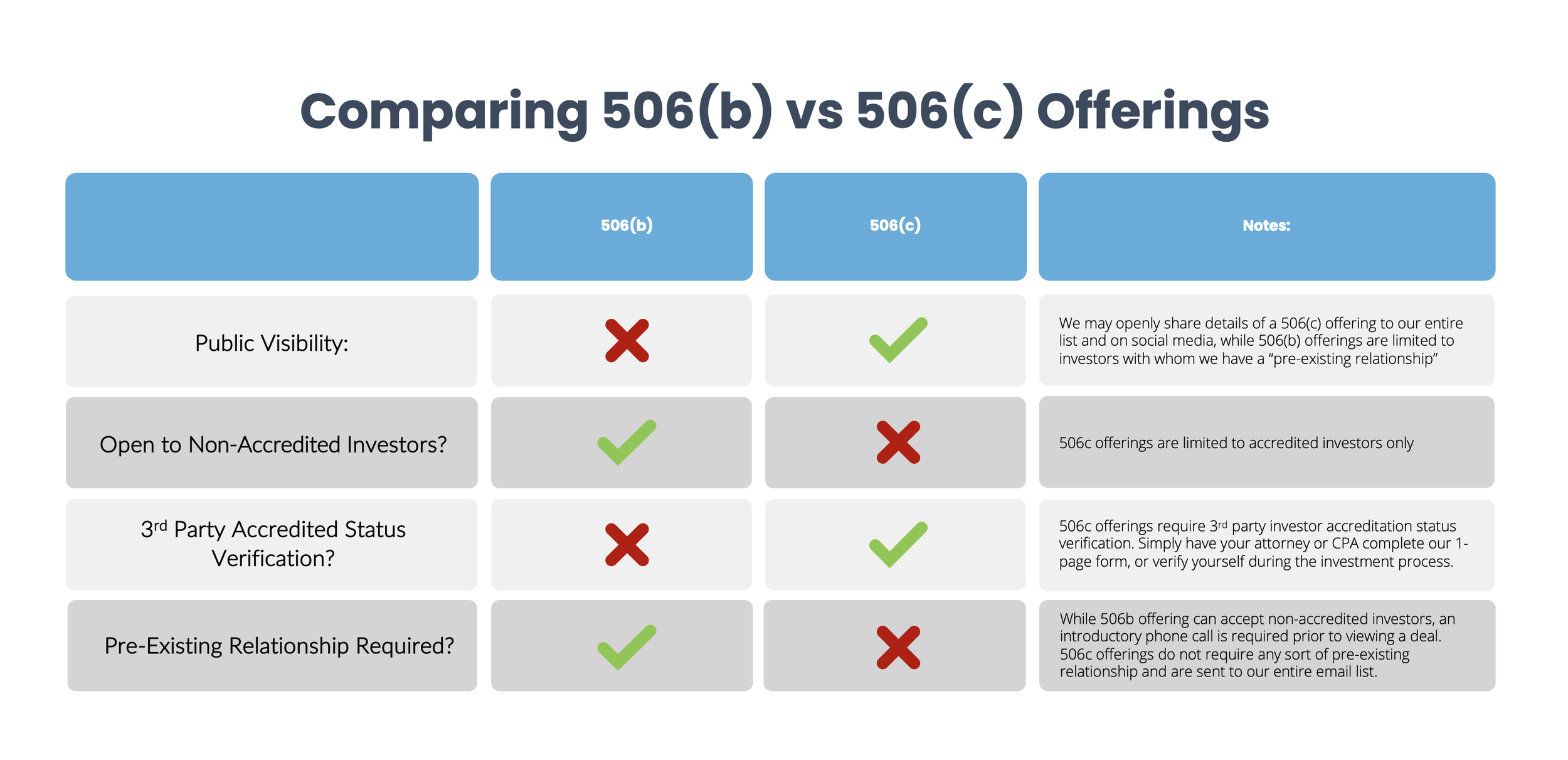506(b) vs 506(c) Offerings
Real estate syndications are some of the most powerful and stable wealth building vehicles out there.
Here is a quick explanation of the two SEC rules they are typically conducted under, and the essential aspects to understand as an investor.
The 506(b) and the 506(c).
Syndications offer direct real estate ownership– and the tax benefits that go with it. But as a passive investor, you are still investing in a security, and securities come with regulation from the SEC.
Issuers of a security have two options – 1. Go public, or IPO which involves millions of dollars in legal, or 2. Fall under an exemption, which is what private placements such as ours do.
Here are the two SEC rules we use to conduct offerings to our investors:
The 506(b)
The 506(b) has been around since the Securities Act of 1933, and while it carries no requirement for investors to be accredited, it does require a "pre-existing relationship" with any investor prior to them viewing the deal. The SEC is fairly generous with this term however, and a short introductory phone call is sufficient to meet the requirement.
Because of the 506(b)'s requirement for a relationship with investors, for years it made lucrative private placements primarily "country club deals", where the only people who could even view potential opportunities were the ones rubbing shoulders with the deal makers.
The 506(c)
That all changed with the introduction of the 506(c), which was signed into law by Barrack Obama in 2012 via the Jumpstart Our Business Startups (JOBS) Act. The new 506(c) allowed for "general solicitation", so long as all of the investors in the deal meet the accredited investor thresholds defined by the SEC, and are verified by a 3rd party.
An accredited investor is someone with:
· Net worth over $1 million, excluding primary residence (individually or with spouse or partner)
OR
· Income over $200,000 (individually) or $300,000 (with spouse or partner) in each of the prior two years, and reasonably expects the same for the current year
Today, most airline pilots and the vast majority of our investors with Turbine Capital are accredited.
So, why does this matter?
We are bound to the same exemption the sponsor selects.
If the deal sponsor runs a 506(b), then we will run a 506(b)
Pros of 506(b)'s are that we can accept non-accredited investors, and we do not have the burden of collecting 3rd party accreditation letters.
Cons of the 506(b) are that we can only share it with the portion of our email list who we've previously had a chance to have a phone call with.
If the deal sponsor runs a 506(c), then we must run a 506(c)
Pros of the 506(c)'s are that we can publicly share details of the deal (even on social media), and with our entire email list.
Cons of the 506(c) are that we cannot accept any non-accredited investors, and we must collect 3rd party accreditation letters from each investor in the deal.
If you would like to be on the distribution list for our occasional 506(b) opportunities (and we haven’t had a chance to connect in-person or on the phone) you’ll need to schedule a call to be placed on the list.
We will be running more 506(c)'s in the future.
Because the vast majority of our investors are accredited anyway, and we desire to reach a wider audience with our offerings, we will be leaning into the 506(c) in the future.
This negates the need for a phone call prior to viewing or executing an investment with us, but as always, we love to get to know our investors and would love to connect anyway.
Please feel free to schedule a call and connect with us any time!
Turbine Capital specializes in commercial real estate syndication deals for pilots and other high-income w2 professionals. If you’d like to learn more about commercial real estate investing, please join our investor club.

